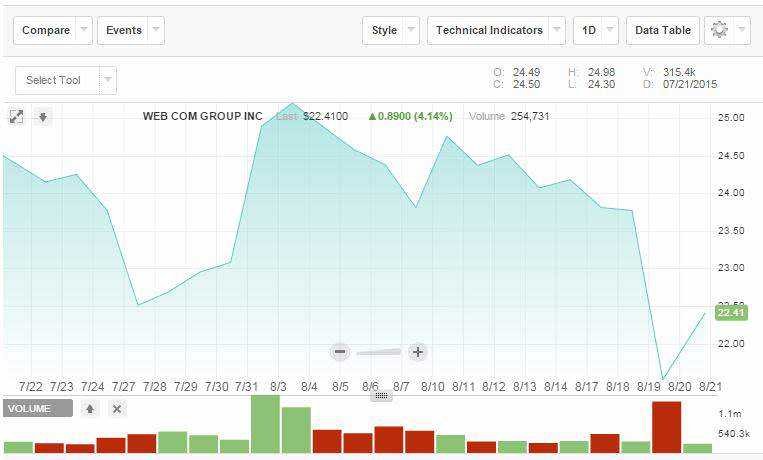The American web hosting company Web.com was hacked by hackers. The company admitted that stolen credit card details from 93.000 customers have been tampered with.
Web.com is not a random company. It is based in the USA and its web hosting services host 3.3 millions of customers.
The company reportedly discovered the breach while conducting security checks. Immediately after they announced that someone "unknown hacker breached one of its servers on August 13 and gained access to customer data."
Stolen data includes: credit card details, real names associated with payment cards and home addresses.
According to the company, no other information, such as social security numbers, passwords, and credit card verification codes were leaked.
At present, it's not known how the hacker managed to get to the company's server or if the stolen data was encrypted.
Let's say the impact of the data breach was very serious in the value of the company's shares after the incident was unveiled.

Web.com is currently investigating the data breach, with the Authorities and trying to reassure its customers, issued the following announcement:
"The security of our customers' information is a high priority at Web.com," said Web.com Chairman and CEO David L. Brown. “Our goals are simple: protect our customers from attacks on the Internet and, in case an attack is successful, repairing it immediately.”
The company has already communicated the incident to its customers via email, and is providing free Credit Protection for one year to affected users. invasion.
Information and photo SecurityAffairs.co





